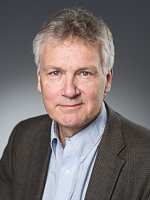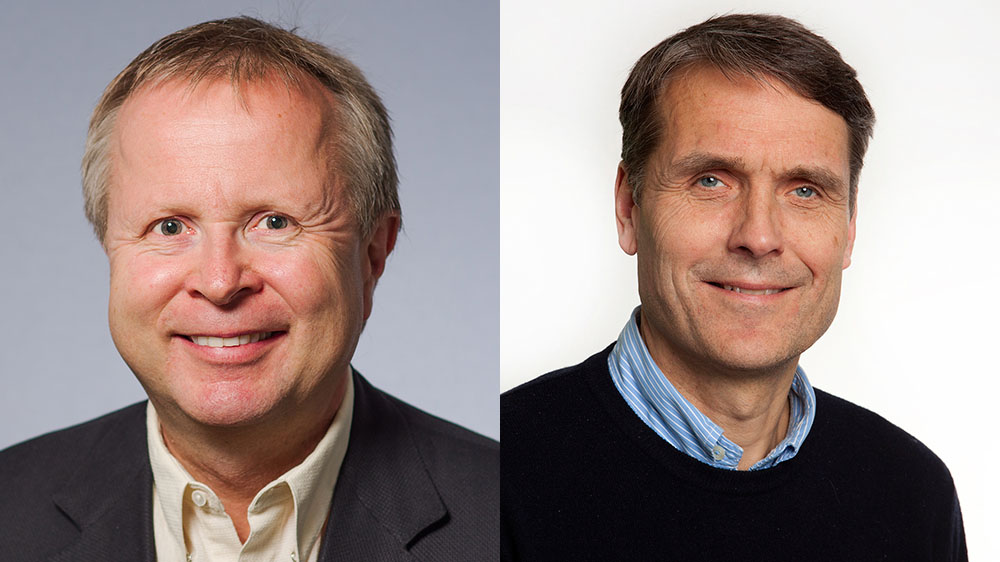To everyone's great joy, funding was allocated to Fellesløft IV. Fellesløftet is a joint initiative where the Norwegian state, through the Research Council, and research institutions work together to fund large, interdisciplinary research projects. The present allocation is the fourth one.

Head of Department at the Institute of Clinical Medicine, Dag Kvale, comments the following:
– These allocations are very gratifying for the research environments, and the Institute is proud that two of our applications were awarded in this national multidisciplinary competition. Notably, several other strong research environments at our Institute also submitted very good applications. We also appreciate these efforts and hope that their research concepts will receive alternative support in the near future.
These are the projects that will be led by the Institute of Clinical Medicine
- Torbjørn Omland
Long-term effects of SARS-CoV-2 infection: An interdisciplinary observational and interventional study program - Ole Andreassen
MultiMent: Polygenic and psychosocial interplay in brain development across mental disorders
In addition, Professor Harald Stenmark is a partner in the project "Biophysics of double bilayer membrane compartments" led by Head of Group Irep Gözen at NCMM, and Professor Emeritus Lars Gullestad, Adjunct Professor Ole Henning Skjønsberg and Adjunct Professor Harriet Akre are partners in the project " Responsible Explainable Machine Learning for Sleep-related Respiratory Disorders (Respire)» led by Professor Thomas Plagemann at the Department of Informatics at the Faculty of Mathematics and Natural Sciences.
Torbjørn Omland
Long-term effects of SARS-CoV-2 infection: An interdisciplinary observational and interventional study program

In this project, Professor Torbjørn Omland and partners will investigate the long-term effects of coronavirus disease/COVID-19. The project is an interdisciplinary collaboration with researchers and clinicians from, among others, cardiology, pulmonology, paediatrics, as well as with psychologists and sport and exercise physiologists.
More specifically, they will investigate the effect of COVID-19 on cardiovascular, pulmonary and central nervous system function. Acute lung damage from coronavirus disease can lead to the development of pulmonary fibrosis, which is a condition that impairs the lungs' ability to exchange oxygen and carbon dioxide, and to chronic impairment of lung function. COVID-19 may also be associated with an increased risk of chronic damage to the heart and central nervous system. Long-term effects following coronavirus disease may occur as a direct consequence of the infection, or indirectly through immunological mechanisms.
– There have been some studies on the possible long-term effects of COVID-19 already, but these studies have mainly been based on data from hospitalised patients, and the studies have lacked adequate control groups. Another weakness of many of these studies is that they lacked information about patients’ health prior to the coronavirus disease. We therefore do not know whether the findings from these studies can be directly attributed to COVID-19, the project leader says.
Professor Omland with partners will therefore investigate long-term health effects in both hospitalised individuals and in those who had a more moderate or mild illness trajectory and were not hospitalised.
The project will follow people who have undergone coronavirus disease over several years. In addition to this, data from Norwegian health surveys will make it possible to take into account any previous illness and the patients' general health prior to COVID-19.
– In this way, we can get a more accurate picture of any long-term effects of COVID-19, Omland says.
In addition, the researchers will investigate the effect of three different, possible treatment principles for patients with various forms of chronic disability because of COVID-19. These include both biological, exercise and psychological forms of treatment.
– Since COVID-19 is a new disease, we lack knowledge about how we can treat long-term sequelae. The findings from our studies will therefore provide new and very important information both to the health sector, to patients and relatives, and to research, Omland says and adds:
– Without generous support from Fellesløft IV, it would not be possible to conduct these studies.
Ole Andreassen
MultiMent: Polygenic and psychosocial interplay in brain development across mental disorders

In this project, Professor Ole Andreassen and partners will integrate individual genetic, neurodevelopmental and environmental factors to identify childhood and adolescent developmental trajectories that are predictive of mental illness.
– We will use large data sets from registers and biobanks, which follow children and young people over time, Andreassen says.
The researchers will use data from the Norwegian Mother, Father and Child Study (MoBa), where there is unique data material on the development of mental illness. They will also conduct a large-scale brain imaging (MRI) study of children and adolescents.
– We will use new computation methods based on machine learning and artificial intelligence to analyse the data material to investigate genetics, brain imaging and environmental exposure simultaneously, the Professor says.
What is unique to the project is that Andreassen and colleagues from other disciplines get the opportunity to study the interplay between individual genetics and environment risk factors.
– The field has been characterised by two camps, which either focus on genes or on the environment, Andreassen points out.
He believes that the interdisciplinary perspective will provide increased research benefits.
– Through the interdisciplinary research that Fellesløftet enables, we have a unique opportunity to find answers to important questions about how mental disorders develop. The combination of different types of data about genes, environment and the brain can give us transformative new knowledge, he says.
This knowledge can contribute to the prevention and better treatment of mental disorders in the future. Regarding the allocation Andreassen says the following:
– We were very happy to receive the message that the project was allocated funding. It is great that the Research Council is investing in research on mental health, and it shows how important interdisciplinary collaboration is to acquire new knowledge in this complex field.
– It is important to highlight that this is based on teamwork, where Professor Lars T. Westlye from the Institute of Psychology at the Faculty of Social Sciences, Professor Eivind Hovig from the Department of Informatics at the Faculty of Mathematics and Natural Sciences and I represent a strong team of young and talented researchers, the Professor concludes.
